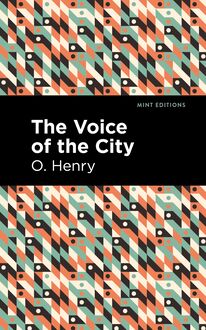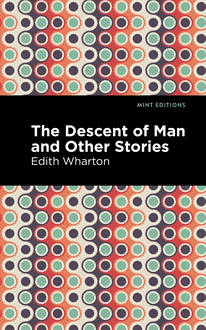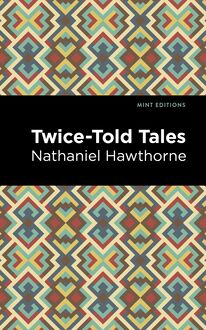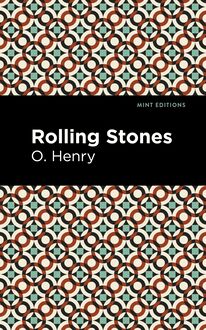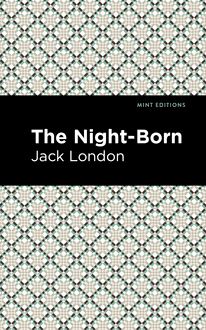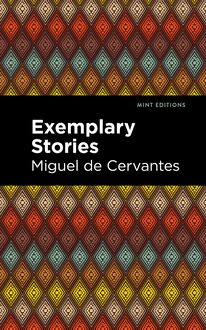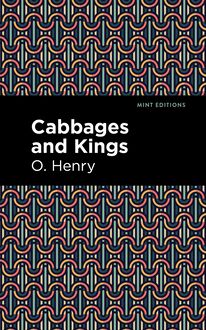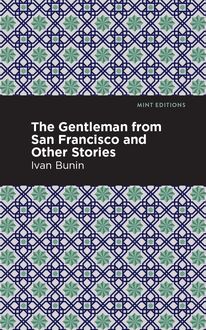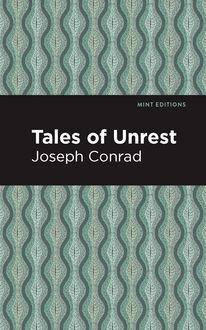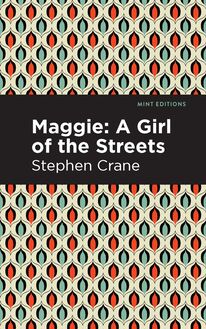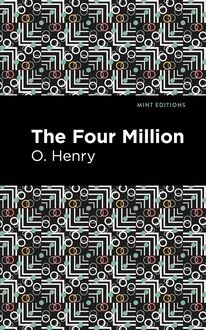-
 Univers
Univers
-
 Ebooks
Ebooks
-
 Livres audio
Livres audio
-
 Presse
Presse
-
 Podcasts
Podcasts
-
 BD
BD
-
 Documents
Documents
-
- Cours
- Révisions
- Ressources pédagogiques
- Sciences de l’éducation
- Manuels scolaires
- Langues
- Travaux de classe
- Annales de BEP
- Etudes supérieures
- Maternelle et primaire
- Fiches de lecture
- Orientation scolaire
- Méthodologie
- Corrigés de devoir
- Annales d’examens et concours
- Annales du bac
- Annales du brevet
- Rapports de stage
La lecture à portée de main
Vous pourrez modifier la taille du texte de cet ouvrage
Découvre YouScribe en t'inscrivant gratuitement
Je m'inscrisDécouvre YouScribe en t'inscrivant gratuitement
Je m'inscrisEn savoir plus
Vous pourrez modifier la taille du texte de cet ouvrage
En savoir plus

Description
Roads of Destiny (1909) is a collection of short stories by American writer O. Henry. Inspired by his experiences as a fugitive and in prison, these stories address themes of crime, poverty, and fate. “A Retrieved Reformation,” perhaps the most notable of the collection’s twenty-two stories, is semi-autobiographical in that it explores the life of a criminal and fugitive who maintains a moral identity while struggling to adjust to life outside of prison. “Roads of Destiny” is the story of a French poet and shepherd named David Mignot. After fighting with his lover Yvonne, he decides to leave his home village of Vernoy in search of fame and adventure. The dreamlike narrative follows him down three paths: one takes him to the home of a wealthy Marquis, where he falls in love with his young daughter; the next leads him to the halls of the king, where he is recruited to act as a body double during a visit to the nearby cathedral; the final one finds him turning back toward home, where he struggles to balance a life of marriage with his poetic calling. In “A Retrieved Reformation,” a safecracker named Jimmy Valentine attempts to lead a quiet life following his release from prison. Using an assumed identity, he settles in Arkansas, where he marries the beautiful daughter of a local banker. Despite his best efforts, however, his criminal past threatens to resurface at every turn. Roads of Destiny is a collection of stories exploring themes of fate and identity by an icon of American literature. With a beautifully designed cover and professionally typeset manuscript, this edition of O. Henry’s Roads of Destiny is a classic of American literature reimagined for modern readers.
Sujets
Informations
| Publié par | Mint Editions |
| Date de parution | 07 mai 2021 |
| Nombre de lectures | 0 |
| EAN13 | 9781513274928 |
| Langue | English |
| Poids de l'ouvrage | 1 Mo |
Informations légales : prix de location à la page 0,0500€. Cette information est donnée uniquement à titre indicatif conformément à la législation en vigueur.
Extrait
Roads of Destiny
O. Henry
Roads of Destiny was first published in 1909.
This edition published by Mint Editions 2020.
ISBN 9781513269924 | E-ISBN 9781513274928
Published by Mint Editions®
minteditionbooks.com
Publishing Director: Jennifer Newens
Design & Production: Rachel Lopez Metzger
Project Manager: Micaela Clark
Typesetting: Westchester Publishing Services
C ONTENTS I. R OADS OF D ESTINY II. T HE G UARDIAN OF THE A CCOLADE III. T HE D ISCOUNTERS OF M ONEY IV. T HE E NCHANTED P ROFILE V. “N EXT TO R EADING M ATTER ” VI. A RT AND THE B RONCO VII. P HOEBE VIII. A D OUBLE - DYED D ECEIVER IX. T HE P ASSING OF B LACK E AGLE X. A R ETRIEVED R EFORMATION XI. C HERCHEZ LA F EMME XII. F RIENDS IN S AN R OSARIO XIII. T HE F OURTH IN S ALVADOR XIV. T HE E MANCIPATION OF B ILLY XV. T HE E NCHANTED K ISS XVI. A D EPARTMENTAL C ASE XVII. T HE R ENAISSANCE AT C HARLEROI XVIII. O N B EHALF OF THE M ANAGEMENT XIX. W HISTLING D ICK ’ S C HRISTMAS S TOCKING XX. T HE H ALBERDIER OF THE L ITTLE R HEINSCHLOSS XXI. T WO R ENEGADES XXII. T HE L ONESOME R OAD
I
R OADS OF D ESTINY
I go to seek on many roads
What is to be.
True heart and strong, with love to light—
Will they not bear me in the fight
To order, shun or wield or mould
My Destiny?
—Unpublished Poems of David Mignot
The song was over. The words were David’s; the air, one of the countryside. The company about the inn table applauded heartily, for the young poet paid for the wine. Only the notary, M. Papineau, shook his head a little at the lines, for he was a man of books, and he had not drunk with the rest.
David went out into the village street, where the night air drove the wine vapour from his head. And then he remembered that he and Yvonne had quarrelled that day, and that he had resolved to leave his home that night to seek fame and honour in the great world outside.
“When my poems are on every man’s tongue,” he told himself, in a fine exhilaration, “she will, perhaps, think of the hard words she spoke this day.”
Except the roisterers in the tavern, the village folk were abed. David crept softly into his room in the shed of his father’s cottage and made a bundle of his small store of clothing. With this upon a staff, he set his face outward upon the road that ran from Vernoy.
He passed his father’s herd of sheep, huddled in their nightly pen—the sheep he herded daily, leaving them to scatter while he wrote verses on scraps of paper. He saw a light yet shining in Yvonne’s window, and a weakness shook his purpose of a sudden. Perhaps that light meant that she rued, sleepless, her anger, and that morning might—But, no! His decision was made. Vernoy was no place for him. Not one soul there could share his thoughts. Out along that road lay his fate and his future.
Three leagues across the dim, moonlit champaign ran the road, straight as a ploughman’s furrow. It was believed in the village that the road ran to Paris, at least; and this name the poet whispered often to himself as he walked. Never so far from Vernoy had David travelled before.
The Left Branch
Three leagues, then, the road ran, and turned into a puzzle. It joined with another and a larger road at right angles. David stood, uncertain, for a while, and then took the road to the left.
Upon this more important highway were, imprinted in the dust, wheel tracks left by the recent passage of some vehicle. Some half an hour later these traces were verified by the sight of a ponderous carriage mired in a little brook at the bottom of a steep hill. The driver and postilions were shouting and tugging at the horses’ bridles. On the road at one side stood a huge, black-clothed man and a slender lady wrapped in a long, light cloak.
David saw the lack of skill in the efforts of the servants. He quietly assumed control of the work. He directed the outriders to cease their clamour at the horses and to exercise their strength upon the wheels. The driver alone urged the animals with his familiar voice; David himself heaved a powerful shoulder at the rear of the carriage, and with one harmonious tug the great vehicle rolled up on solid ground. The outriders climbed to their places.
David stood for a moment upon one foot. The huge gentleman waved a hand. “You will enter the carriage,” he said, in a voice large, like himself, but smoothed by art and habit. Obedience belonged in the path of such a voice. Brief as was the young poet’s hesitation, it was cut shorter still by a renewal of the command. David’s foot went to the step. In the darkness he perceived dimly the form of the lady upon the rear seat. He was about to seat himself opposite, when the voice again swayed him to its will. “You will sit at the lady’s side.”
The gentleman swung his great weight to the forward seat. The carriage proceeded up the hill. The lady was shrunk, silent, into her corner. David could not estimate whether she was old or young, but a delicate, mild perfume from her clothes stirred his poet’s fancy to the belief that there was loveliness beneath the mystery. Here was an adventure such as he had often imagined. But as yet he held no key to it, for no word was spoken while he sat with his impenetrable companions.
In an hour’s time David perceived through the window that the vehicle traversed the street of some town. Then it stopped in front of a closed and darkened house, and a postilion alighted to hammer impatiently upon the door. A latticed window above flew wide and a nightcapped head popped out.
“Who are ye that disturb honest folk at this time of night? My house is closed. ’Tis too late for profitable travellers to be abroad. Cease knocking at my door, and be off.”
“Open!” spluttered the postilion, loudly; “open for Monsiegneur the Marquis de Beaupertuys.”
“Ah!” cried the voice above. “Ten thousand pardons, my lord. I did not know—the hour is so late—at once shall the door be opened, and the house placed at my lord’s disposal.”
Inside was heard the clink of chain and bar, and the door was flung open. Shivering with chill and apprehension, the landlord of the Silver Flagon stood, half clad, candle in hand, upon the threshold.
David followed the Marquis out of the carriage. “Assist the lady,” he was ordered. The poet obeyed. He felt her small hand tremble as he guided her descent. “Into the house,” was the next command.
The room was the long dining-hall of the tavern. A great oak table ran down its length. The huge gentleman seated himself in a chair at the nearer end. The lady sank into another against the wall, with an air of great weariness. David stood, considering how best he might now take his leave and continue upon his way.
“My lord,” said the landlord, bowing to the floor, “h-had I ex-expected this honour, entertainment would have been ready. T-t-there is wine and cold fowl and m-m-maybe—”
“Candles,” said the marquis, spreading the fingers of one plump white hand in a gesture he had.
“Y-yes, my lord.” He fetched half a dozen candles, lighted them, and set them upon the table.
“If monsieur would, perhaps, deign to taste a certain Burgundy—there is a cask—”
“Candles,” said monsieur, spreading his fingers.
“Assuredly—quickly—I fly, my lord.”
A dozen more lighted candles shone in the hall. The great bulk of the marquis overflowed his chair. He was dressed in fine black from head to foot save for the snowy ruffles at his wrist and throat. Even the hilt and scabbard of his sword were black. His expression was one of sneering pride. The ends of an upturned moustache reached nearly to his mocking eyes.
The lady sat motionless, and now David perceived that she was young, and possessed of pathetic and appealing beauty. He was startled from the contemplation of her forlorn loveliness by the booming voice of the marquis.
“What is your name and pursuit?”
“David Mignot. I am a poet.”
The moustache of the marquis curled nearer to his eyes.
“How do you live?”
“I am also a shepherd; I guarded my father’s flock,” David answered, with his head high, but a flush upon his cheek.
“Then listen, master shepherd and poet, to the fortune you have blundered upon to-night. This lady is my niece, Mademoiselle Lucie de Varennes. She is of noble descent and is possessed of ten thousand francs a year in her own right. As to her charms, you have but to observe for yourself. If the inventory pleases your shepherd’s heart, she becomes your wife at a word. Do not interrupt me. To-night I conveyed her to the château of the Comte de Villemaur, to whom her hand had been promised. Guests were present; the priest was waiting; her marriage to one eligible in rank and fortune was ready to be accomplished. At the alter this demoiselle, so meek and dutiful, turned upon me like a leopardess, charged me with cruelty and crimes, and broke, before the gaping priest, the troth I had plighted for her. I swore there and then, by ten thousand devils, that she should marry the first man we met after leaving the château , be he prince, charcoal-burner, or thief. You, shepherd, are the first. Mademoiselle must be wed this night. If not you, then another. You have ten minutes in which to make your decision. Do not vex me with words or questions. Ten minutes, shepherd; and they are speeding.”
The marquis drummed loudly with his white fingers upon the table. He sank into a veiled attitude of waiting. It was as if some great house had shut its doors and windows against approach. David would have spoken, but the huge man’s bearing stopped his tongue. Instead, he stood by the lady’s chair and bowed.
“Mademoiselle,” he said, and he marvelled to find his words flowing easily before so much elegance and beauty. “You have heard me say I was a shepherd. I have also had the fancy, at times, that I am a poet. If it be the test of a poet to adore and cherish the beautiful, that fancy is now strengthened. Can I serve you in any way, mademoiselle?”
The young woman looked up at him with eyes dry and mournful. His frank,
-
 Univers
Univers
-
 Ebooks
Ebooks
-
 Livres audio
Livres audio
-
 Presse
Presse
-
 Podcasts
Podcasts
-
 BD
BD
-
 Documents
Documents
-
Jeunesse
-
Littérature
-
Ressources professionnelles
-
Santé et bien-être
-
Savoirs
-
Education
-
Loisirs et hobbies
-
Art, musique et cinéma
-
Actualité et débat de société
-
Jeunesse
-
Littérature
-
Ressources professionnelles
-
Santé et bien-être
-
Savoirs
-
Education
-
Loisirs et hobbies
-
Art, musique et cinéma
-
Actualité et débat de société
-
Actualités
-
Lifestyle
-
Presse jeunesse
-
Presse professionnelle
-
Pratique
-
Presse sportive
-
Presse internationale
-
Culture & Médias
-
Action et Aventures
-
Science-fiction et Fantasy
-
Société
-
Jeunesse
-
Littérature
-
Ressources professionnelles
-
Santé et bien-être
-
Savoirs
-
Education
-
Loisirs et hobbies
-
Art, musique et cinéma
-
Actualité et débat de société
- Cours
- Révisions
- Ressources pédagogiques
- Sciences de l’éducation
- Manuels scolaires
- Langues
- Travaux de classe
- Annales de BEP
- Etudes supérieures
- Maternelle et primaire
- Fiches de lecture
- Orientation scolaire
- Méthodologie
- Corrigés de devoir
- Annales d’examens et concours
- Annales du bac
- Annales du brevet
- Rapports de stage
